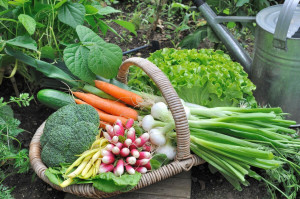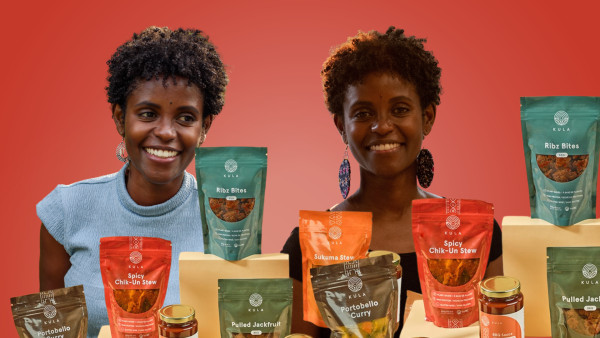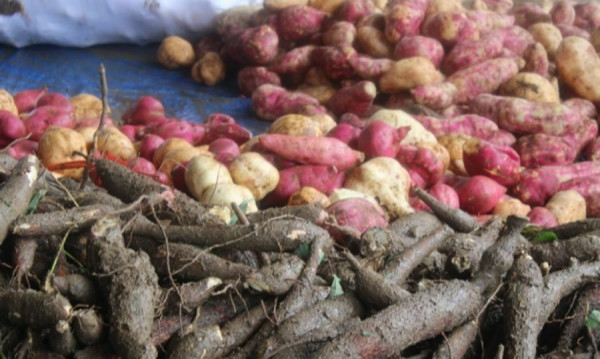Most Canadians purchase their produce via supermarkets. The quantities are seemingly endless and when depleted magically reappear, in neat rows for the next day’s shoppers. We rarely pay attention to where our food comes from and what goes into making sure we are never in short supply. I remember as a child seeing the Foodland Ontario commercials touting the pride that “good things grow in Ontario.” We saw images of vibrant coloured, fresh fruits and vegetables, bright smiling farmers and vast open fields. I felt secure, never giving a second thought to the countless apples I threw away from the lunch my mother packed. Never considering that one day they would be a scarce treasure for my children.
As an adult, I am completely aware of the financial circumstances that render families unable to walk into the local grocery store and pick up whatever they need, and the dependency many families have on our food banks. However, pre-COVID this was seen more as a personal economic situation. Now it is a national economic discussion of supply and demand. What if Canada could not produce the food that its citizens needed regardless of one’s ability to afford the product or not.
As countries began to close their borders, the fear of diminishing foreign relations and a dismantling supply chain put Canadians in a particularly vulnerable position. Initially, the concern was supplies coming from the US and other countries, such as the heavily sought after N95 masks, however another threat became ever more clear, our food. The vast majority of Canada’s produce, meat and dairy is homegrown, however, the process in which we get those goods from farm to table is far more entangled in foreign policy than many of us are aware.
For decades Canada has welcomed tens-of-thousands of foreign farm workers. Each Spring approximately 60,000 temporary workers arrive from Mexico and the Caribbean to assist with farm production. Due to Covid-19 Canada finds itself short 56,000 workers, who are unable to travel due to national travel restrictions.
The restriction to non-essential travel that initially included temporary farm workers has now been lifted. The Prime Minister announced the federal government’s allowance of $1500 per worker to assist farms in accommodating temporary workers that must be quarantined for 14 days once they arrive in Canada. However there is the additional concern of whether or not temporary workers will opt to come to Canada and if they do, the impact their delays will cost, having to start the season upwards of a month late. One Ontario asparagus farmer told CBC he may lose up to $40,000 a day due to the delay since he does not have the assistance he needs to harvest the 20,000lbs of asparagus his farm typically produces.
This pandemic has sparked conversations about essential jobs and the skills of the Canadian workforce. With a rising unemployment rate (prior to COVID-19) and the advent of the gig economy, should our educational institutions be directing students to develop essential skills that ensure our economy and population can survive in the event of a disaster? Many are suggesting that furloughed workers should be redirected to help in the agriculture sector. There is a lot to consider when discussing the feasibility of a strategy like that, namely ability and accessibility.
The snowball effect created by Covid-19 on our food supply may cause food shortages and, ultimately a price hike in produce. Some municipalities are rolling out backyard garden programs to help ease the demand. The City of Brampton has announced a city-wide gardening program to “keep residences active and help with food security”. The city will provide residents with soil and seed to grow fruits and vegetables in their yards and request that residents donate a portion of their harvest to local food banks.
This most certainly is not an immediate nor long-term solution should Canadians actually be facing a food shortage; however, learning to grow your own food is a vital life skill. Not all of us are Ol’ MacDonald; some of us find it difficult to even keep a houseplant alive, so the learning curve is steep. The City of Brampton will provide tips on how to prepare and nurture your garden.
Here is something to consider, food insecurity is most prevalent in cities and is accompanied by economic disparity. Those that are most impacted by food insecurity, rarely have the infrastructure (land) and means (money) to feed their family from what they grow, however, community gardens are available in most Canadian municipalities and are often underutilized. Community gardens are in no way a fix to the systemic problem, but city gardens are an excellent source of horticultural education.
The lack of availability of fresh fruits and vegetables and the cost of fresh produce has impacted marginalized people in Canada for a very long time, the ramifications of which have absolutely been life and death. Diet-related diseases such as diabetes and hypertension account for approximately 41,500 deaths each year, according to the Canadian Diabetes Association. A population more educated and involved in their food supply and empowered with access to proper food make better food decisions.
I am a farmer’s granddaughter, so I may be biased, but I always found being a farmer to be incredibly honourable and essential work. We rely on our farmers; they are the cornerstone of our communities because, quite literally they keep us alive!
Hats off to all the essential workers, thank you for all you do for us. Stay healthy and stay safe.

 By
By 







